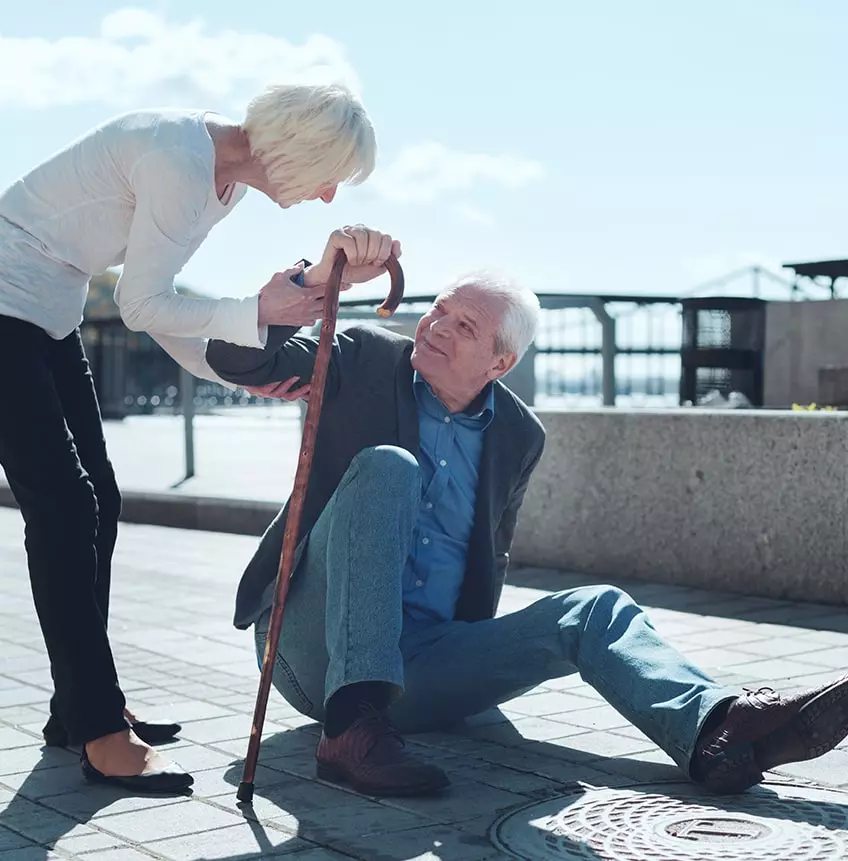.jpg)
As we age, our feet naturally change the arches flatten, the skin becomes thinner, and balance may decline. Choosing the right pair of old age shoes is not simply a matter of style; it is a crucial factor in maintaining mobility, independence, and safety.
The UK’s National Health Service (NHS) estimates that one in three adults over 65 experiences a fall each year, often due to unsuitable footwear. The right shoes can significantly reduce that risk while improving posture and comfort.
Why Choosing the Right Shoes Matters for Seniors
Find YOUR ideal care home NOW!
Foot pain, instability, or fatigue can all stem from wearing shoes that don’t support the body properly. Proper footwear helps prevent:
- Slips and falls
- Corns and bunions
- Lower back and knee pain
- Circulatory discomfort
A well-designed shoe provides stability, cushioning, and support while accommodating common conditions such as diabetes, arthritis, or swollen feet.
Key Features to Look for in Old Age Shoes
| Feature | Description | Benefit for Seniors |
|---|---|---|
| Non-slip soles | Rubber or textured soles designed to provide maximum grip on different surfaces. | Prevents slips and falls indoors or outdoors. |
| Adjustable fastenings | Velcro or elastic laces make it easier to put on and remove shoes without bending down. | Ideal for seniors with limited mobility or arthritis. |
| Wide fit and soft uppers | Accommodates swollen feet or deformities such as bunions. | Enhances comfort and reduces pressure points. |
| Lightweight and breathable materials | Leather or mesh that allow airflow while supporting the foot structure. | Prevents overheating and keeps feet dry. |
| Supportive insoles | Removable cushioned insoles with arch support and shock absorption. | Reduces pain and fatigue during walking. |
Special Footwear for Common Conditions
Certain medical conditions require extra care in choosing footwear:
Diabetic shoes: Reduce pressure and friction to prevent ulcers.
Orthopedic shoes: Customizable fit with arch support for posture correction.
Extra-wide shoes: For edema or lymphedema cases where feet swell throughout the day.
Consulting a podiatrist before purchase can help identify the exact type of shoe required for your condition.
Tips for Buying Old Age Shoes
-
Try shoes later in the day, when feet are slightly swollen, to ensure the best fit.
-
Always test shoes while walking on different surfaces in the store.
-
Avoid high heels or completely flat soles, a small heel (1–2 cm) improves posture.
-
Replace shoes regularly to maintain good shock absorption.
-
Prioritize comfort over aesthetics, your feet will thank you.
FAQ – Old Age Shoes
1. What type of shoes are best for the elderly?
Lightweight, non-slip, supportive shoes with adjustable fastenings and soft materials are ideal for seniors.
2. Should older adults wear slippers at home?
Slippers can be worn, but they should have firm soles and heel support. Avoid backless slippers to reduce fall risks.
3. How often should seniors replace their shoes?
Every 6 to 12 months, depending on wear. Worn-out soles can increase instability and discomfort.
4. Are orthopedic shoes worth it?
Yes, especially for people with diabetes, arthritis, or chronic foot pain. They offer customized comfort and alignment.
5. Can I buy old age shoes online safely?
Yes, but always check sizing charts and opt for retailers that offer easy returns or fitting consultations.
Need help finding a care home?
Senior Home Plus offers free personalized guidance to help you find a care facility that suits your health needs, budget, and preferred location in the UK.
Call us at 0203 608 0055 to get expert assistance today.
Search for Care Homes by Region
| East Midlands | Eastern | Isle of Man |
| London | North East | North West |
| Northern Ireland | Scotland | South East |
| South West | Wales | West Midlands |
| Yorkshire and the Humber |
Share this article :
Latest posts
You are looking for an establishment for your loved one ?
Get availability & prices
Fill in this form and receive
all the essential information
We would like to inform you of the existence of the opposition list for telephone canvassing.









